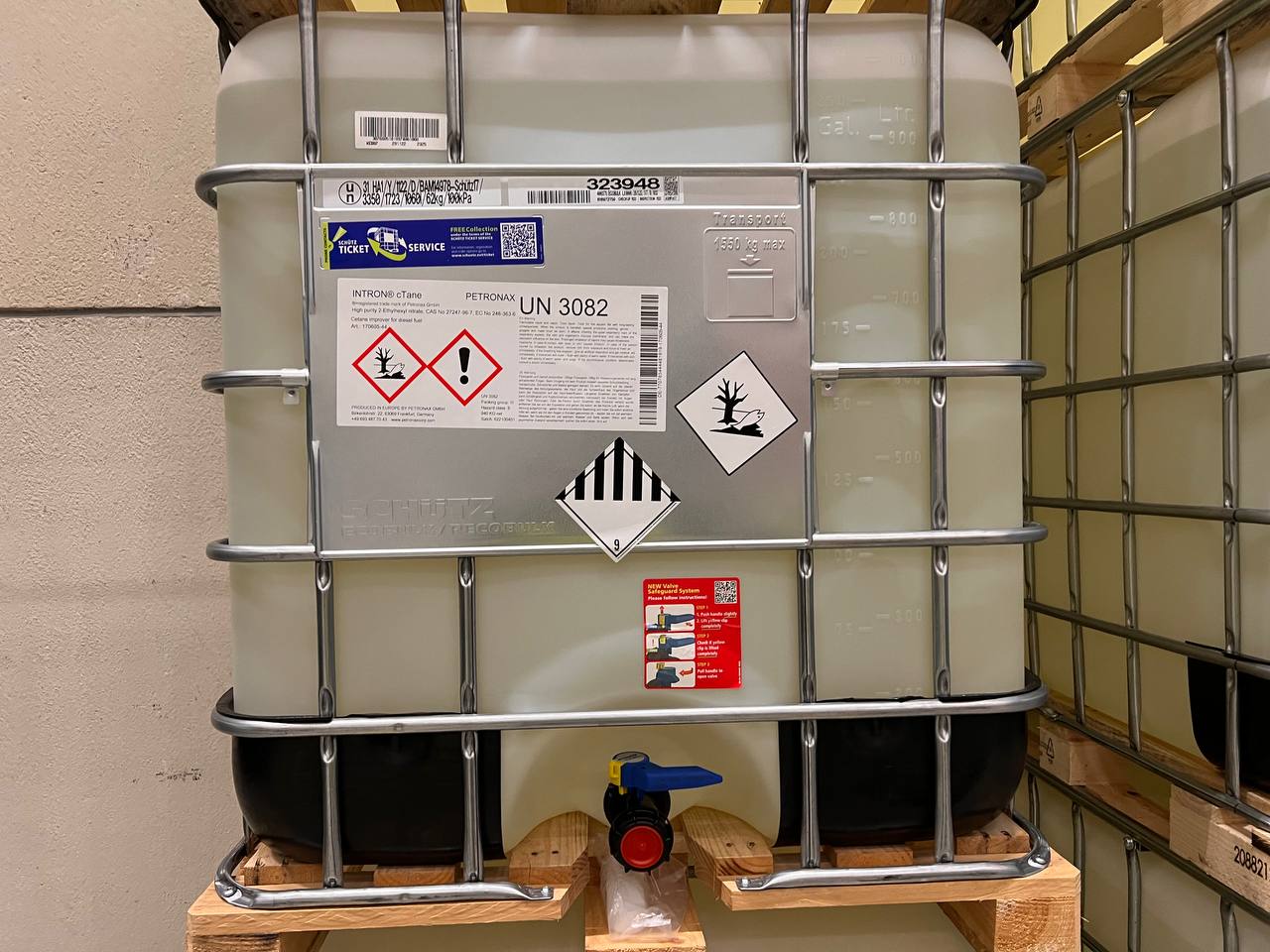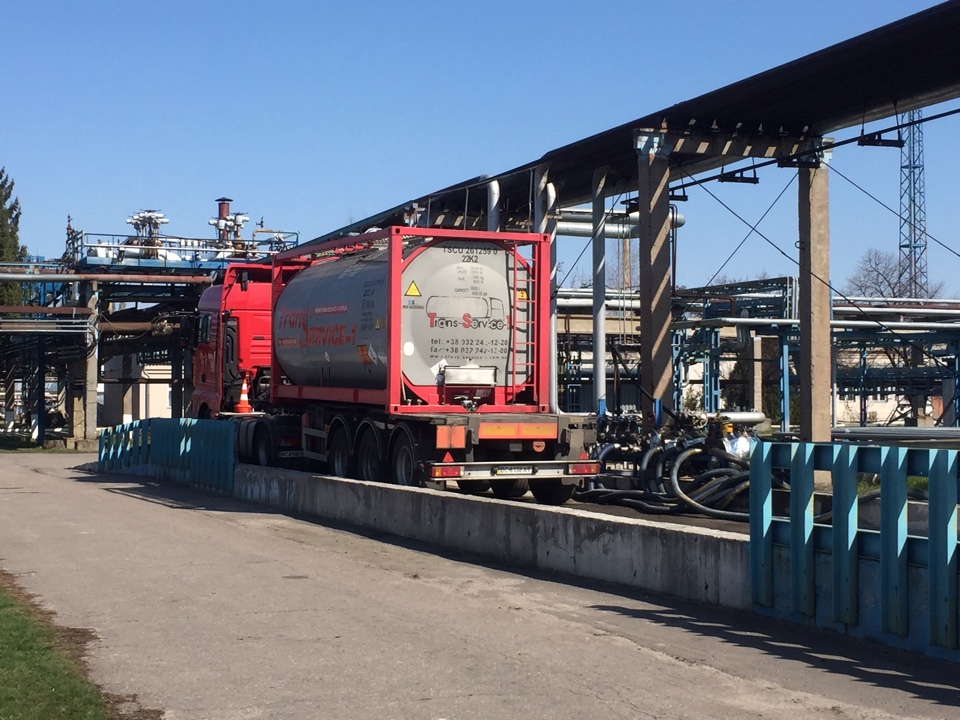INTRON cTane – cetane improver 2 Ethylhexyl nitrate 2EHN
Diesel fuel is an important source of energy for transportation and industrial applications. It is a fuel that is widely used around the world, especially in heavy-duty vehicles such as trucks, buses, and trains. The quality of diesel fuel is determined by a number of factors, including its cetane number. The cetane number is a measure of how easily a fuel ignites in a diesel engine. Fuels with higher cetane numbers have shorter ignition delays and therefore provide better combustion, which results in improved engine performance and lower emissions.
One way to increase the cetane number of diesel fuel is through the use of cetane improvers. Cetane improvers are chemical additives that are added to diesel fuel to increase its cetane number. They work by reducing the ignition delay of the fuel, which leads to better combustion and improved engine performance. In this article, we will discuss the use of cetane improvers in diesel fuel production and their economic and production efficiency.
Types of Cetane Improvers There are several types of cetane improvers that are used in diesel fuel production. The most common type is alkyl nitrates, such as isopropyl nitrate and 2-ethylhexyl nitrate. These additives are typically used in concentrations of 0.1 to 0.5% by volume. Other types of cetane improvers include peroxyesters, peroxides, and amino compounds.
Advantages of Cetane Improvers The use of cetane improvers in diesel fuel production has several advantages. First, they can improve the combustion efficiency of diesel engines. This leads to improved fuel economy and lower emissions. Second, cetane improvers can help reduce engine noise, which is especially important for heavy-duty vehicles that operate in urban areas. Finally, cetane improvers can improve the cold-starting performance of diesel engines, which is critical in colder climates.
Economic Efficiency of Cetane Improvers The use of cetane improvers in diesel fuel production can also have economic benefits. One of the main economic benefits is improved fuel economy. Improved fuel economy means that less fuel is consumed to travel a given distance, which can lead to cost savings for consumers and businesses. In addition, improved fuel economy can lead to lower emissions, which can result in reduced regulatory compliance costs.
Another economic benefit of cetane improvers is reduced engine maintenance costs. Diesel engines that run on fuels with higher cetane numbers tend to produce less soot and other combustion byproducts, which can reduce engine wear and tear. This can lead to longer engine life and lower maintenance costs over the lifetime of the engine.
Production Efficiency of Cetane Improvers The use of cetane improvers can also improve the production efficiency of diesel fuel. One way that cetane improvers can improve production efficiency is by reducing the need for other additives. For example, some diesel fuels require the use of lubricity additives to protect the engine from wear and tear. By improving the combustion efficiency of the fuel, cetane improvers can reduce the need for lubricity additives, which can simplify the production process and reduce costs.
Cetane improvers can also improve the stability of diesel fuel during storage and transportation. Diesel fuel is prone to degradation over time, which can lead to the formation of sediments and other contaminants. Cetane improvers can help prevent this degradation by improving the stability of the fuel. This can lead to longer shelf life and reduced waste.
Conclusion In conclusion, the use of cetane improvers in diesel fuel production has several economic and production efficiency benefits. These benefits include improved fuel economy, reduced engine maintenance costs, and improved fuel stability. While cetane improvers do add to the cost of diesel fuel production, the economic and production efficiency benefits can outweigh these



